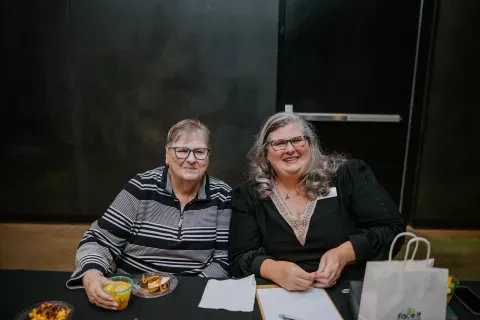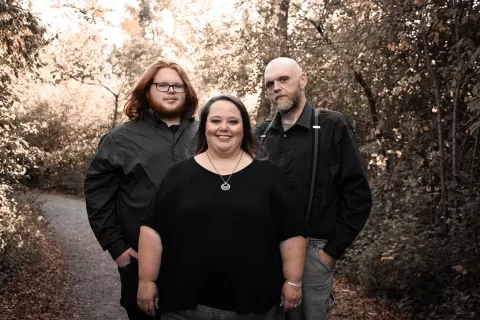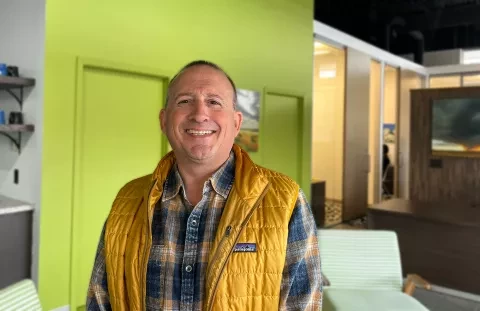The world has one data point for addiction wellness: sobriety. We don't buy that.
We focus on all aspects of life. We ask our members, “Are you more hopeful?” “Is your employment more stable?” “Are things better at home?”
These and many other measurements prove that our members are doing better. And doing better – not just being sober – is what gets people well.
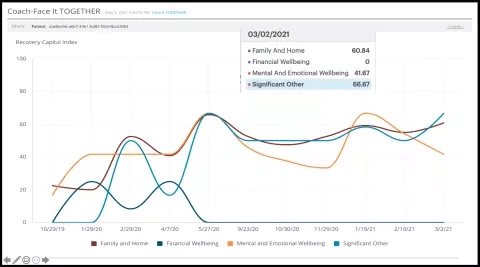
Recovery Capital Index
How we measure addiction wellness
Sobriety alone doesn't tell us much about changes in a person's whole wellbeing.
Our proprietary measurement tool gives members a true picture of their addiction wellness – in more than 26 areas covering emotional, mental and physical health. We use that data to connect the dots for our members and create a personalized plan of action.
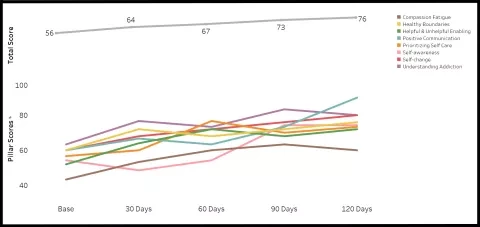
Wellness Index
How we measure loved one wellness
We developed, piloted and implemented the Wellness Index with the recognition that the RCI wasn't serving our loved one members.
The Wellness Index encompasses eight pillars at the heart of loved one wellness: self-care, self-change, communication, helpful enabling, healthy boundaries, understanding addiction, self-awareness and compassion fatigue. As far as we know, we're the only organization currently using a piloted and internally-validated instrument to measure success with loved one members – one of the many elements that makes our program groundbreaking.
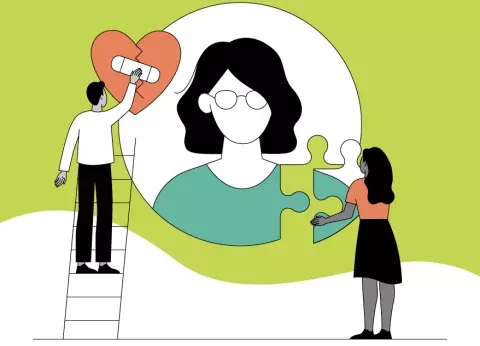
Our Member Outcomes Report
We're proud to share our 2016-23 Member Outcomes Report. This isn't a traditional annual report, which is a decision we've made intentionally. Our approach at Face It TOGETHER is truly individualized – members drive their coaching sessions and subsequently define their own success. This is exactly why we don't present a coaching success rate. Our definition of success is as broad and unique as our members. No one number or metric will demonstrate the outcomes our members are experiencing.
The stories behind our data

